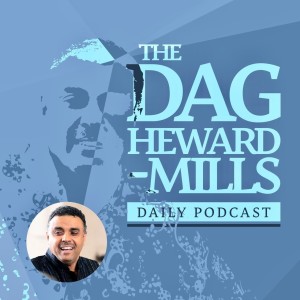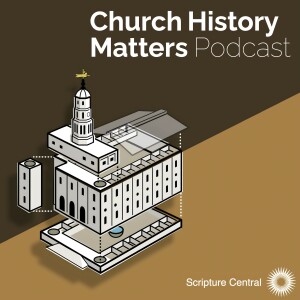

G'day and welcome to Partake! Tonight I want to give a reflection somebody who is indeed a servant of the Lord and took great delight in all of Scripture. That person, is John RW Stott. By necessity, this is just a very brief introduction of the life of Reverend John Stott, and I concentrate mainly on his role as an evangelist. John Stott holds that he is more "an activist than a thinker", which is certainly evident in his ministry as a pioneer outreach worker. From the evidence of his life, we can see that has indeed fulfilled this thought.
Life and ministry summary.John Stott was born 27 April 1921. to Sir Arnold and Emily Stott. John Stott became a Christian as a schoolboy at a youth camp led by Eric Nash. Nash discipled the young Stott post-conversion with letters over a five-year period, encouraging and rebuking. This was good groundwork for the future ministry of Stott. Graduating from Cambridge University, Stott was ordained in 1945. Initially as assistant curate at All Souls, Stott served as Rector from 1950 to 1975. His role since has been as Rector Emeritus. At All Souls, Stott instituted home groups, workplace ministry, student outreach, prayer meetings, lay evangelism, Guest Services and new believers follow-up. Catherwood comments that Stott's expository preaching was a "new phenomenon" in the Anglican church. Michael Green calls him "the nations most gifted evangelist at the time." He was the evangelicals' prime mover within the Anglican communion, showing that someone could be both evangelical and Anglican. He has conducted over 50 missions to universities in Britain and abroad. Stott is also the author of over 40 books.
Pioneering Outreach WorkerThe impact Stott has had on Christianity in Britain and abroad, can not be underestimated. Despite facing calls to leave what some evangelicals called an apostate church, Stott refused by saying that it was better to fight the evangelical cause from within the Anglican church. He has spurned the opportunities for "promotion" to archbishop. He has eschewed the offers of luminary evangelical theological colleges of Moore and Wycliffe Hall. His reasons for not accepting these varied, however it was more due to his humble nature. Stott appears never to seek honour for himself, but rather to deflect it upon Christ.
Stott's Outreach Theology.Stott's maxim is "Balanced Biblical Christianity" or BBC for short. Through this, social action is interminably linked with evangelistic outreach. Fred Catherwood cites Stott's observation regarding Luke 16:19-31, that the rich man was punished for "being scandalously indifferent to the poor around him". While the majority of evangelicals tried to categorize evangelism and social action differently, Stott did not. Stott's evangelism formula is evangelism equals gospel plus social action, which is evident in Acts 6.
Local OutreachWe only need to see the changes he made at All Souls, to observe his biblical convictions regarding outreach. Stott exemplifies innovative evangelism, unafraid of new methods, whilst sticking to the biblical Gospel. Green attributes this to an openness to the Spirit's working. Guest services of this type were almost unknown before the 1950s, according to Green. Today it is almost de rigueur for churches to have regular Guest Services and for new Christians to be followed up and discipled. When Stott started them, it was a new concept. The service focused on a single point - to present Christ to those who don't know him. The church members were actively encouraged to bring non-believers to these services, and hence lay evangelism was in action with training provided. Until Stott came along, evangelism was seen as the job for the ministers, pastors and professional Christians. Stott sees Christ as the master of Christians and hence, Christians should obey what Christ has said. Ergo, Matthew 28:18-20 was for all Christians and not just ministers. It is this motivation of lay people that helps see the Great Commission being fulfilled. As for the nurture of young Christians, Stott believed new Christians should also have some form of training in Christian belief. Hence the birth of ‘Nursery Class', where new believers were given three months training in their new faith. Invariably, these new believers were also taught in evangelism and helped with the Guest Services.
Global OutreachStott founded the Langham Trust, which arranges for solid theological training of Third World church leaders. London Institute for Contemporary Christianity seeks to help people to relate Christ to the contemporary world. Another Stott founded organization, Evangelical Literature Trust, distributes books based on solid theology to church leaders in needy countries, financed mostly to on his books royalties. These groups marry Stott's activist mentality with concern for Christianity and social action evangelism.
Twenty First CenturyFor church leaders today, there is much to emulate in Stott. Stott has an accountability group to help him make ministry decisions. Leaders should be prepared to talk to others about their biblical beliefs, with people from all theological persuasions. Stott has shown that if we desire the Father's will, have Christ as our centre, the Holy Spirit guiding our steps, the Bible to hand, combined with an attitude of love, then we can argue our evangelical position against any other theological position. Whatever our ministry is, we can continue to give the church fresh impetus in evangelism. Twenty-first century Christians should be prepared to use innovative outreach, without Gospel compromise. Whereas Stott could rightly assume that most of his congregation had some bible knowledge from Sunday School, today that is not an assumption we can make. With the fall in Church attendances, society now is much more oblivious to the character of Jesus. With the advent of multiculturalism came a pantheon of religions now in Britain. These two things combined have seen the ‘Jesus consciousness' of Britain fall since Stott's day. It is a challenge to us to raise this ‘Jesus conscience'. To do this will require Spirit-led innovation and willing leaders.
However...However a warning to be heeded. In Why I Am A Christian, Stott writes regarding CS Lewis' conversion, categorically claiming this to be Lewis' Christian conversion. However, if we follow that reference, it actually refers to Lewis' Theistic conversion. Lewis' denies it was a conversion to Christ. Lewis states his actual Christian conversion was some time later. If a non-believer was to have read Stott's book and follow the reference, that non-Christian may actually think a belief in God is enough to be a Christian, and then stop reading the book. We know this is not what Stott subscribes to. Therefore as leaders, we need to constantly review what we write and say, so that nobody can be led into error through us. He has also recently courted controversy by saying he is agnostic towards a literal view of hell and eternal suffering and leans more towards a view of annihilationism where the soul is destroyed. For this he was heavily criticized by Christian leaders the world over and supported by others.
ConclusionJohn Stott's life exemplifies radical outreach and innovation, blended with a desire to serve Jesus Christ as Lord. He is truly one of the twentieth centuries master servants of Jesus Christ. To the staff and many members of the congregation of All Souls Langham Place down through the years, he is simply known as "Uncle John". He is unique in the Anglican church in that he has always been associated with the one church throughout his life and ministry. In 2006, When on his way to preach at All Souls, John Stott fell and broke his hip. This saw him announce his retirement from ministry at the age of 86 and he now has moved from his Central London flat to a retirement village for Anglican Clergy in the south of England. Time Magazine in 2005, named him as one of the 100 most influential people of the Twentieth Century. As we have seen here briefly, he was certainly one of them, and it is all to the glory of God that He raised up his servant, Uncle John.
Tap or click to save this Podcast as a MP3.More Episodes
All Episodes>>You may also like
Create Your Podcast In Minutes
- Full-featured podcast site
- Unlimited storage and bandwidth
- Comprehensive podcast stats
- Distribute to Apple Podcasts, Spotify, and more
- Make money with your podcast












